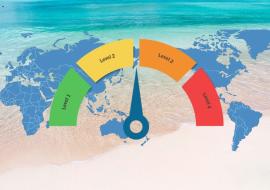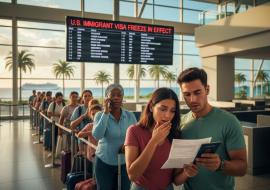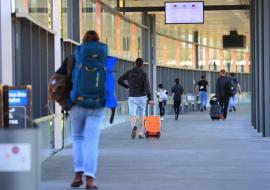Brazil to Require Travelers from U.S., Australia and Canada to Have Visas

Starting next Wednesday April 10, travelers holding passports from the United States, Australia, and Canada will be required to obtain a tourist visa to enter Brazil via air, land, or sea, as reported by Agencia Brasil. This change comes under Decree 11.875/2024, which extended the initial January 10 deadline by three months to mitigate negative impacts on Brazil's tourism industry during peak season.
This visa requirement reverses a decision made by former President Jair Bolsonaro, who had lifted such restrictions in March 2019 for travelers from the United States, Canada, Australia, and Japan in a unilateral move, while Brazilians still required visas for travel to those countries. Consequently, Itamaraty explained that the new measure is based on the principle of reciprocity.
In May 2023, Japan was removed from the list when Brazil and the island nation signed an agreement to waive visa requirements for tourists from either country for up to 90 days.
Brazil's International Tourism Promotion Agency (Embratur) has launched a campaign through tour operators and airlines in the affected countries to remind their customers of the new visa requirement.
Travelers from these countries intending to visit Brazil must apply for an electronic visa, known as the e-Visa, through the platform: https://brazil.vfsevisa.com, at a cost of US$ 80.90, as highlighted by Agencia Brasil.
The entire application process is conducted electronically, eliminating the need for applicants to visit a Brazilian consulate. All required documentation can be uploaded digitally, and the visa is delivered via email. A printed copy will be required along with a valid passport for entry into Brazil.
Travelers are advised to apply for the e-Visa well in advance to avoid potential delays or missed connections.
The e-Visa allows multiple entries and has the same validity period as conventional visas: ten years for US nationals and five years for Canadians and Australians.














